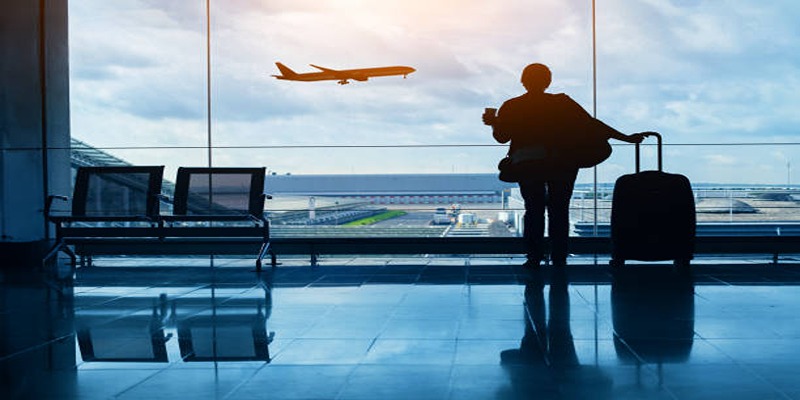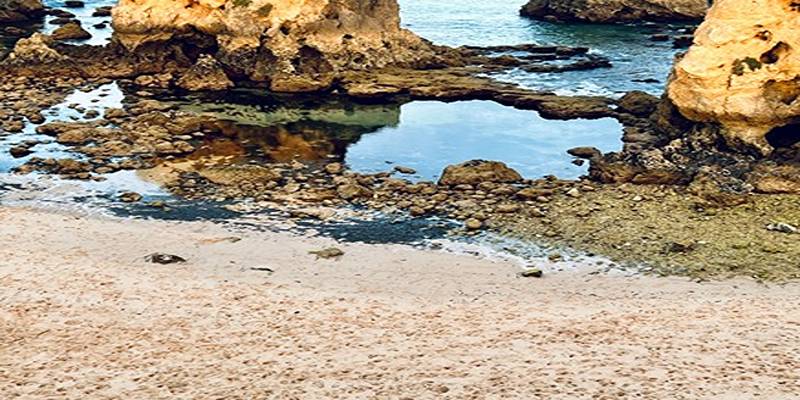Advertisement
Traveling by train in Morocco offers an exciting and comfortable way to explore this North African gem. The train system weaves through stunning landscapes, quaint villages, and vibrant cities, allowing travelers to absorb the region's diverse culture and history. Whether you're visiting the bustling streets of Marrakech, the historical charm of Fez, or the modern capital of Rabat, Morocco's extensive train network makes the journey almost as enjoyable as the destination itself.
This guide will cover everything you need to know about navigating Morocco by train, from ticket options and schedules to insider tips for making the most of your rail adventures. It will ensure that you experience the country to its fullest.
The Moroccan train network, primarily operated by ONCF (Office National des Chemins de Fer), covers major cities along the country's Atlantic and inland routes. The most popular destinations include Marrakech, Casablanca, Rabat, Fez, and Tangier, all easily accessible via the countrys reliable trains.
Morocco also boasts Africa's first high-speed train line, Al Boraq, which runs between Tangier and Casablanca, significantly cutting travel time. For most trips, the standard trains are more than adequate, offering both first-class and second-class options, with very reasonable fares compared to Europe or North America.
Traveling by train in Morocco is one of the most scenic and comfortable ways to explore the countrys diverse cities and landscapes. With an extensive network connecting major hubs like Marrakech, Fez, and Tangier, Moroccan trains offer a reliable and affordable option for both tourists and locals.
You have several options when it comes to purchasing train tickets. Most travelers opt to buy tickets directly at the train stations. However, during peak tourist seasons or holidays, lines can get long, and some trains may sell out quickly, especially for popular routes like Marrakech to Casablanca or Fez to Rabat. To avoid any hassle, you can purchase tickets in advance online through the ONCF website.

First-class tickets provide extra comfort with more spacious seating and air-conditioned compartments, and they dont cost significantly more than second-class tickets. Its worth splurging on longer trips. Second-class, however, is still comfortable and affordable, making it a great option for budget-conscious travelers.
For those traveling between Tangier and Casablanca, the Al Boraq high-speed train is a must-try. It connects these two cities in just over two hours, as opposed to nearly five hours on a standard train. The train is modern, fast, and incredibly smooth, making it ideal for both tourists and locals looking to save time. The train also stops in Rabat and Kenitra, making it convenient for those planning a multi-city tour in the northern part of the country.
Marrakech to Casablanca: This highly traveled route connects Moroccos largest city, Casablanca, with the popular tourist destination, Marrakech. The journey takes about 2.5 to 3 hours on a regular train, making it a comfortable option for travelers moving between these two vibrant cities.
Fez to Rabat: The train from Fez to Rabat takes around 2.5 hours. Rabat is Morocco's political capital and features impressive colonial architecture, while Fez is known for its historic medina and ancient university. The scenic ride offers views of the beautiful countryside, including the Atlas Mountains and lush valleys.
Tangier to Marrakech (via Casablanca): For those with more time, the trip from Tangier to Marrakech via Casablanca lasts about 9 to 10 hours. This route is perfect for enjoying Morocco's stunning coastal and southern landscapes. Booking a first-class seat enhances comfort and allows for a leisurely journey with picturesque views along the way.
Moroccos train stations, especially in major cities like Casablanca and Marrakech, are modern and well-maintained. Facilities are generally clean, with access to restrooms, small shops, and cafes.
However, its worth noting that stations can get busy, particularly in tourist-heavy locations. Expect to encounter plenty of touts offering rides, luggage services, or unsolicited tours, especially around larger stations like Marrakech. It's wise to politely decline their offers unless youve specifically arranged for transportation in advance.
Traveling by train in Morocco is considered safe, even for solo travelers and women. ONCF staff, security guards, and police presence are noticeable at most stations, contributing to an overall sense of safety. While on board, youll find that many locals, including families and business travelers, also use trains, which further adds to a comfortable and secure experience.
That said, basic precautions, like keeping an eye on your belongings and avoiding isolated areas late at night, are recommended as they would be anywhere else in the world.
Plan Ahead: While tickets can be purchased at the station, buying them online in advance is a smart move, especially for popular routes during peak seasons.
Bring Snacks: While some trains offer food and beverages, the selection is often limited. Stocking up on snacks before boarding will ensure a more enjoyable trip, especially on long rides.

Know Your Route: Some trains have multiple stops along the way, so its important to pay attention to announcements (usually in French or Arabic). Keep a map or route schedule handy to avoid confusion.
Travel First-Class for Long Journeys: For trips over three hours, the extra comfort of first-class seating is worth the small additional cost. Youll have more space, quieter compartments, and fewer passengers.
Traveling by train in Morocco offers a unique way to experience the countrys diverse landscapes, from its coastal cities to the majestic mountains and desert plains. With an extensive rail network and affordable ticket options, train travel is both a convenient and enriching way to see Morocco, whether youre a seasoned traveler or a first-time visitor.
From the high-speed Al Boraq connecting the north to the reliable ONCF trains serving the countrys heartland, the Moroccan rail experience is sure to enhance your journey.
Advertisement

By Madison Evans/Jan 06, 2025

By Verna Wesley/Oct 04, 2024

By Kristina Cappetta/Nov 13, 2024

By Tessa Rodriguez/Dec 16, 2024

By Korin Kashtan/Feb 19, 2025

By Celia Shatzman/Feb 07, 2025

By Nancy Miller/Oct 24, 2024

By Madison Evans/Dec 06, 2024

By Kristina Cappetta/Nov 09, 2024

By Vicky Louisa/Dec 07, 2024

By Kristina Cappetta/Dec 14, 2024

By Tessa Rodriguez/Oct 13, 2024